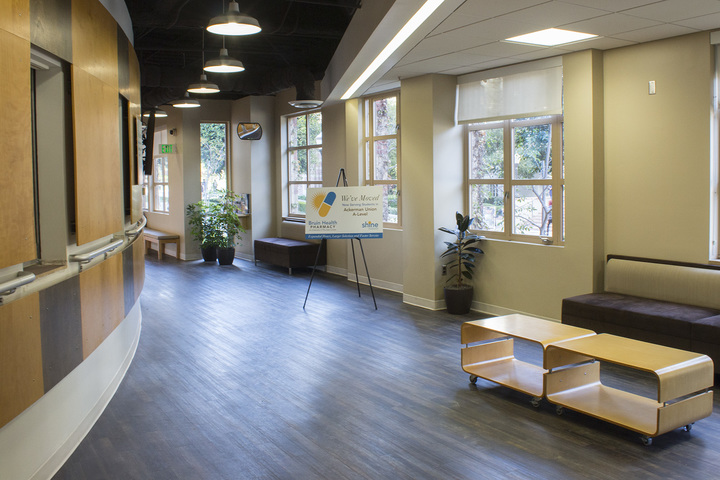Emily Merz: Available space at Ashe Center should be allocated for CAPS expansion

(Sihui Song/Daily Bruin)
By Emily Merz
Jan. 30, 2017 9:37 p.m.
After two suicides on campus last quarter and with midterm season approaching, UCLA cannot afford to put the mental health of students on the back burner any longer.
A 17 percent increase in students visiting Counseling and Psychological Services fall quarter has left students facing long wait times for appointments – up to five weeks for “nonurgent” cases and up to two weeks for students in urgent conditions.
Although UCLA spokesperson Rebecca Kendall says UCLA is making mental health a priority, these wait times indicate otherwise.
Even though CAPS executive director Dr. Nicole Green said that CAPS has received temporary funding to hire more clinicians, it has not increased the number of appointments it provides per student because it does not have any more space to hold more appointments. Until CAPS finds more space, no amount of funding will fix extensive wait times.
But instead of looking for space, the Ashe Student Health and Wellness Center is using the vacancy from moving its pharmacy to Ackerman Union to build a dental office for students. Clearly, there is an epidemic of students not brushing their teeth at UCLA.
UCLA needs to rethink how it is using available space on campus. With the demand for CAPS appointments at a record high, the limited space UCLA has should not be used to construct a dental office because there is much lower demand. The Ashe Center should collaborate with CAPS by leasing its second floor to make space for individual therapy appointments.
While Kendall insists CAPS is looking for more space, she provided no specifics on where they are looking or when they will open new office spaces. At this point, it is unclear if CAPS has any plan at all to find more space.
On the other hand, John Bollard, chief of operations at the Ashe Center, said that while the second floor of the Ashe Center could theoretically be used for psychological services, the Ashe Center decided it wanted a dental office centrally located on campus. He said that the new dental office will have five chairs and will likely serve 3,900 students per academic year, which amounts to 15 percent of UC SHIP students.
Nearly 4,000 students are hardly enough to justify building a dental office on campus when students can already use UC SHIP coverage at the UCLA School of Dentistry clinic right on campus. Additionally, the UCLA School of Dentistry and the two other dental offices in Los Angeles that serve UCLA students are not maxed out on space to the degree that CAPS is.
The demand for CAPS is much higher. An average of 534 students visit the center for individual therapy each week. It could accommodate more if the wait times were shorter. Additionally, 17 percent more students requested CAPS appointments fall quarter while only 6 percent more students went to the Ashe Center for primary care last quarter.
Not only do dental services have a lower demand, students seeking dental services don’t need care as frequently as students seeking psychological services, who will need multiple appointments for effective treatment.
At this point, any space used for medical services trades off with space for psychological services. To meet the high demand for individual therapy appointments, the Ashe Center should lease the second floor of its center to CAPS to build more confidential offices. In the future, the executive boards of CAPS and the Ashe Center should meet regularly to share information about student use of their services so they have a more comprehensive understanding of the kinds of care students need and can make more informed decisions about how to renovate and use their space.
These lengthy wait times and the lack of available appointments are currently threatening the mental well-being of students. Making a student in a crisis wait up to two weeks for an appointment is incredibly dangerous. By the time students in nonurgent need receive appointments, they have struggled with their psychological issues for half of a quarter. Given the dire implications, CAPS and the Ashe Center should be taking every possible measure to expand its much-needed services – and that starts with space.


